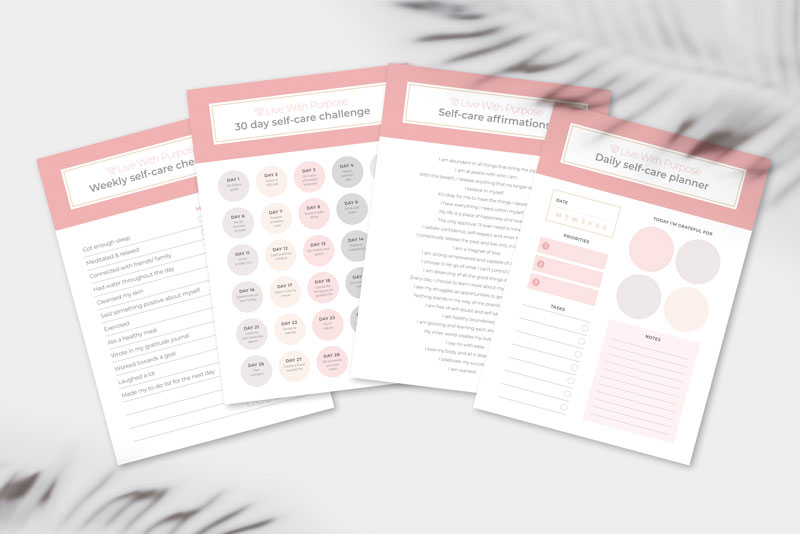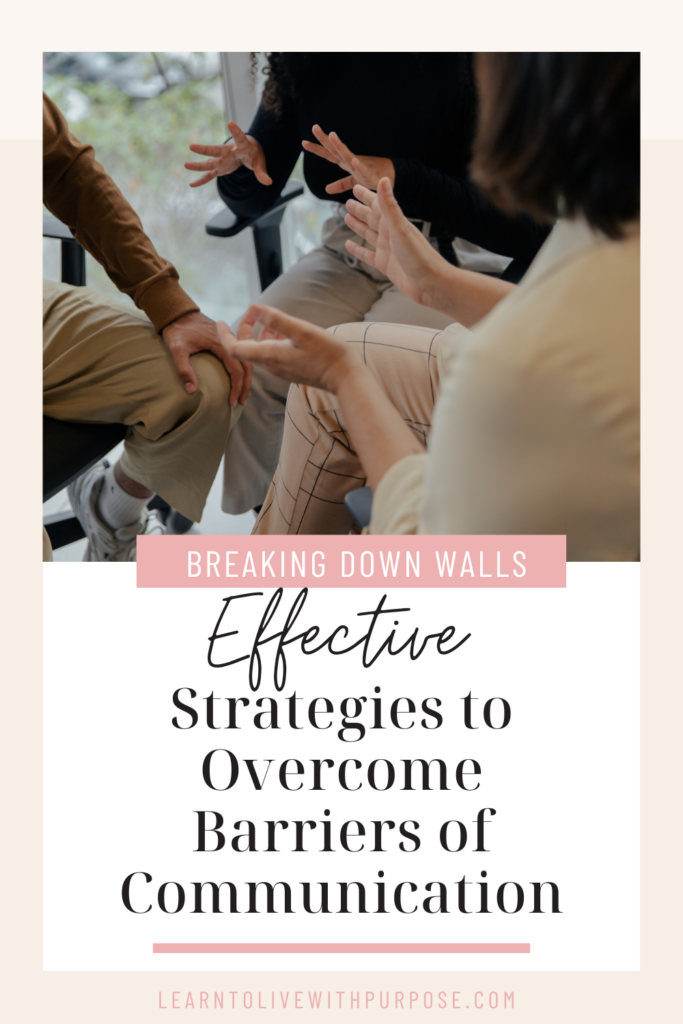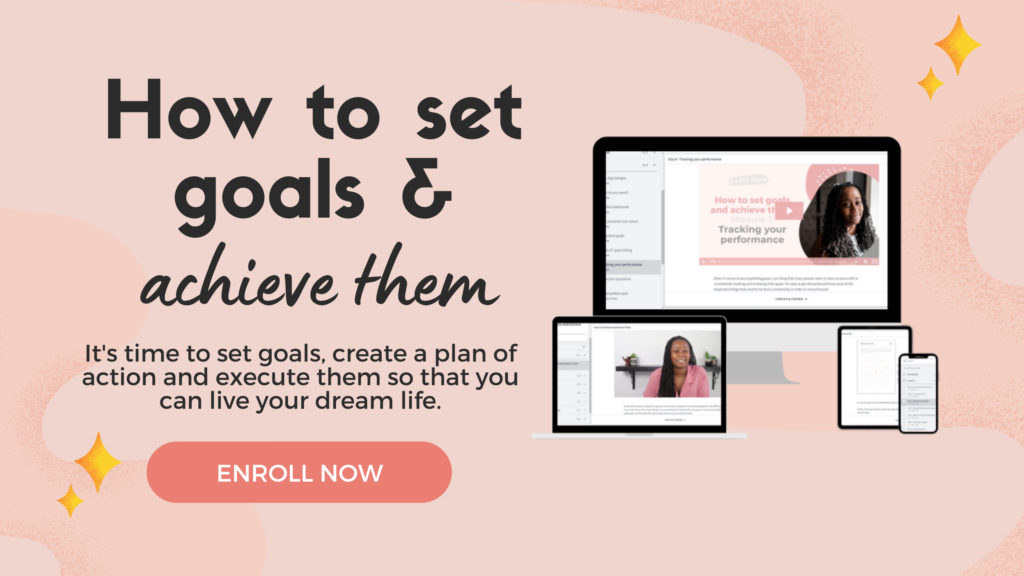
Communication is the lifeblood of relationships, both personal and professional. However, barriers to effective communication can hinder the exchange of ideas, lead to misunderstandings, and strain relationships. 🫠
In this comprehensive guide, we will explore common barriers to communication and provide practical strategies to overcome them.
Whether you’re navigating workplace dynamics, fostering better connections with friends and family, or seeking to improve your overall communication skills, these insights will help you break down the walls that impede effective communication. 🙂
Let’s get started!
Understanding Barriers to Communication:
1. Lack of Clarity and Precision:
One of the fundamental barriers to effective communication is a lack of clarity. Vague or imprecise messages can lead to confusion and misinterpretation. It’s essential to articulate your thoughts clearly, using precise language and providing relevant details to ensure your message is accurately received. 😊
2. Emotional Barriers:
Emotional barriers, such as stress, anxiety, or strong emotions, can impede communication. When individuals are emotionally charged, they may struggle to express themselves clearly or be receptive to others. Managing emotions and creating a calm environment are crucial for effective communication.

3. Cultural and Language Differences:
Cultural and language diversity can create barriers to communication. Differences in language proficiency, communication styles, and cultural norms may lead to misunderstandings.
To overcome this barrier, it’s essential to foster cultural awareness, be patient with language differences, and use clear and straightforward language. 😊
4. Noise and Distractions:
Physical and environmental factors, such as noise and distractions, can interfere with communication. Whether it’s background noise, technological disruptions, or a busy environment, minimising distractions enhances the clarity and effectiveness of communication. 👂

5. Assumptions and Stereotypes:
Preconceived assumptions and stereotypes can create barriers by influencing how we interpret messages. Avoid making assumptions about others’ perspectives or intentions. Instead, approach communication with an open mind, seeking to understand diverse viewpoints without judgment. 🧠
6. Lack of Feedback:
Communication is a two-way process, and the absence of feedback can be a significant barrier. Encourage open dialogue, actively seek input from others, and provide constructive feedback. Creating a feedback loop ensures that messages are received and understood and not going in one ear and out the other.

7. Poor Listening Skills:
Ineffective listening is a pervasive barrier to communication. When individuals fail to actively listen, they miss important details, leading to misunderstandings. Improving listening skills involves giving full attention, avoiding interruptions, and practicing empathy to understand the speaker’s perspective. 😊
8. Power Dynamics and Hierarchies:
Unequal power dynamics or hierarchies within relationships or organisations can stifle open communication. Those in lower positions may feel hesitant to express their thoughts or concerns. Fostering an inclusive and open communication culture helps overcome these power-related barriers. 🫂
Strategies to Overcome Communication Barriers:
1. Prioritise Clarity in Communication:
- Articulate Clearly: Use clear and concise language when conveying your message. Avoid jargon or overly complex terms that may confuse the listener.
- Provide Context: Offer relevant background information to ensure your message is fully understood. Context helps the listener connect the dots and interpret your message accurately.
- Encourage Clarification: Create an environment where others feel comfortable seeking clarification. Encouraging questions can help address potential misunderstandings. 🤗

2. Emotional Intelligence and Regulation:
- Self-Awareness: Develop an understanding of your own emotions. Recognise how emotions may impact your communication style and be mindful of potential emotional triggers.
- Empathy: Practice putting yourself in others’ shoes. Empathetic communication involves understanding others’ perspectives and responding with sensitivity.
- Stress Management: Learn effective stress management techniques, such as deep breathing or mindfulness, to regulate emotions during challenging conversations.
Want to learn more about emotional intelligence? Check out this blog here: How to practice emotional regulation – tips for adults on how to cope
3. Cultural Sensitivity Training:
- Cultural Awareness: Educate yourself about different cultures, communication styles, and customs. A culturally aware approach fosters understanding and respect.
- Language Simplification: In multilingual settings, use simple language and avoid idioms or slang that may not translate well. Visual aids can also help enhance understanding. 🤗
- Inclusivity: Create an inclusive environment that values and celebrates cultural diversity. Encourage open discussions about cultural differences to promote understanding.
4. Create a Distraction-Free Environment:
- Choose Appropriate Settings: Select quiet and conducive environments for important conversations. Minimse disruptions by choosing a location with minimal background noise.
- Digital Etiquette: In digital communication, turn off notifications and ensure a stable internet connection. This helps maintain focus during virtual meetings or discussions. 🧑💻
- Active Presence: Demonstrate active presence by giving your full attention to the speaker. Make eye contact and eliminate distractions to signal that you are fully engaged.

5. Challenge Assumptions and Stereotypes:
- Open-Mindedness: Approach conversations with an open mind, avoiding preconceived notions. Be willing to challenge your assumptions and consider alternative perspectives.
- Promote Diversity and Inclusion: Actively promote diversity and inclusion in your personal and professional spheres. Encourage dialogue that challenges stereotypes and fosters a culture of acceptance.
- Educate Others: Share information that challenges common stereotypes. Education is a powerful tool in breaking down barriers and promoting understanding. 📖
6. Establish a Feedback Culture:
- Encourage Open Dialogue: Foster an environment where open dialogue is encouraged. Create channels for constructive feedback and ensure that all team members feel comfortable expressing their opinions. 🗣️
- Regular Check-Ins: Conduct regular check-ins to gather feedback on communication processes. Identify areas for improvement and implement changes based on the feedback received.
- Model Constructive Feedback: Lead by example by providing constructive feedback. Demonstrating how to give and receive feedback creates a culture of continuous improvement.
7. Enhance Listening Skills:
- Active Listening Techniques: Practice active listening by giving your full attention to the speaker. Avoid interrupting and provide feedback to demonstrate that you are engaged.
- Paraphrasing: Paraphrase the speaker’s message to confirm understanding. This not only clarifies information but also signals to the speaker that you are actively processing their words. 💬
- Empathetic Listening: Cultivate empathetic listening by trying to understand the emotions behind the words. Consider the speaker’s perspective and respond with empathy.

GRAB YOURSELF OUR FREE SELF-CARE BUNDLE!
It’s time to take some time out for yourself love! Check out this four-page bundle of self-care goodness that you can use to relax, refresh and rejuvenate. You deserve it sis.
Pop your info in and download your bundle now ❤️
8. Promote Inclusive Communication:
- Equal Participation: Encourage equal participation in discussions, regardless of hierarchical positions. Create platforms where everyone has the opportunity to voice their opinions and ideas.
- Team-building Activities: Foster a sense of unity within the team through team-building activities. Shared experiences can break down barriers and create a more cohesive group.
- Leadership Modeling: Leaders should model inclusive communication. By demonstrating openness to diverse perspectives and ideas, leaders set the tone for an inclusive organisational culture. 🏬
Real-Life Applications:
1. Workplace Communication:
- Clear Communication Channels: Establish clear communication channels within the workplace. This includes well-defined reporting structures, open-door policies, and regular team meetings.
- Conflict Resolution Workshops: Conduct workshops on conflict resolution to equip employees with the skills needed to navigate disagreements effectively. Emphasise active listening and constructive feedback.👂
2. Personal Relationships:
- Quality Time: In personal relationships, allocate quality time for meaningful conversations. Create an environment where both partners feel comfortable expressing their thoughts and emotions.
- Shared Activities: Engage in shared activities to strengthen bonds. Activities that foster communication, such as cooking together or participating in a hobby, provide opportunities for connection. 👨👩👧
Do you want to know your partner better? Check out our Relationship Planner.
3. Conflict Resolution:
- Mediation Training: Provide mediation training for individuals involved in conflict resolution. Equipping team members with mediation skills enhances their ability to facilitate productive discussions. 🧘♀️
- Establishing Common Ground: Identify common ground during conflicts. Finding shared values or goals can serve as a foundation for resolution and create a more collaborative atmosphere.
Conclusion:
Effectively overcoming barriers to communication involves a multifaceted approach that integrates self-awareness, empathy, and a commitment to fostering an inclusive environment. By implementing these strategies in various aspects of our lives, we can dismantle communication barriers and pave the way for stronger connections, collaboration, and understanding. 🤗
As we actively apply these strategies, we contribute to creating a culture of effective communication—one where diverse perspectives are valued, feedback is embraced, and relationships thrive. Breaking down the walls that hinder communication is a transformative journey that leads to more meaningful connections and a more harmonious and connected world.
Pin this post for a reminder 📌 👇

Related Blog
Things to Say “No” to for you to Live a Happier Life
How to Stop Settling For Less Than You Deserve
How to Become the Best Version of Yourself: A Guide For 20-Somethings
Success requires discipline and discipline is required for you stay committed to your goals.
Let’s face it, staying committed to anything let alone a goal can be difficult. Life has a way of throwing unwanted surprises at you when you least expect it. 🙄
What do you think it would feel like to be deeply committed to your goals and 100% knew that there is absolutely nothing out there that can stop you in your tracks?
Yes, something can come at you and slow you down, but your persistence is so prominent that you will stop at nothing until that goal has been completed. 🤔
In other words, what would it feel like to be the person who would walk through walls to meet their purpose in life?
Life will continuously test your resolve to see how much you desire your goal.
Are you ready to stop half-assing your commitments and stay on the journey towards your goals?
Well, read on!

So how do you stay committed to your goals? Here’s a list of a few ways to help keep you on track.
Be accountable to someone
An accountability partner is like a partnership where you mutually agree to coach each other and provide feedback on a regular basis.
You and your accountability partner agree to either daily, weekly or monthly feedback sessions to share wins and talk about the challenges faced.
When you commit to someone that you will complete a task it stretches your probability of completion to 65%. Moreover, when you create a specific accountability appointment with a person you are committed to the odds are in your favour at 95%!

Take away choice
When you’re only half committed to a goal there’s a tendency to keep the door open for other options. We think, sure I’m going to start this diet BUT if my mum cooks I can’t offend her and not eat her food or If I’m too tired from work, surely it will be okay to order from UberEATS or Deliveroo since I don’t have the time to cook.
This is pure nonsense and not viable reasons. 😂
If you’re going to commit, commit wholeheartedly and remove all possibility in your mind of having an exit plan to get out of your responsibilities. There’s just one option: doing your commitment.
If you notice that you’re not upholding your commitment irrespective of not having an exit plan, ask yourself why you’re holding back. Are you going through the motions or have you given yourself so many commitments to uphold? 🤔
What’s stopping you from really showing up? Think about this resistance and ask yourself what it would take to deepen this commitment.
Celebrate small wins
Depending on the size of the goal you want to reach it’s important to focus on the smaller victories you reach before you hit your final goal.
It gives you the momentum and the self-confidence to keep going. It’s self-empowering and a testament that you are on the right path.

There is a science behind this thought process too. When we accomplish something, it activates the reward center of our brains, allowing us to feel a sense of pride.
Dopamine is released and energizes us with feel-good emotions. This chemical helps you to experience the feeling of getting rewarded and can hook you on wanting to achieve more.
There are valuable lessons in taking smaller steps toward your goals, as they allow you to iron out the creases before pursuing your larger goal. The opportunity to get it right in the build-up phase is favourable than getting it wrong when it matters.
Remember your why
Remembering and knowing your why gets mentioned a lot in the blog posts I write because it’s a fundamental step to reaching success. Remember the deeper reason you committed to this goal.
💕Why do you do what you do?
💕Why do you love what you love?
Why is not the question, it’s the question.
Not only do you need to know your Why, you ned to remember it. You need to embrace it. You need to hold onto it when life throws everything at you.
NEVER let it go.
Do a minimum 1% of action every day
Big goals can seem daunting due to the amount of work involved to achieve them. It takes time to do anything worthwhile but thankfully we do not need to do everything one big chunk at a time.
Tackling big goals is all about the accumulation of daily work.
Writing a page a day doesn’t seem much but do it for 365 days and you have enough to fill a novel!

Figure out what your daily chunk of work is, and every day, no matter what happens, make sure it gets done.
“But I don’t have enough time” – Of course you do. We all make time for things we want to make time for.
If you can’t take 10-20 minutes out of your day to do something important to you then you need to ask yourself why. 🤷♀️
Got a hectic day and not sure where you can fit the time in? You find time the same way you find spare change – in the nooks and crannies. You find the cracks between the big stuff – your commute to work, your lunch break, just before you go to bed etc.
You may have to miss out on your favourite TV show or wake up earlier than you’re used to. Nonetheless, you can find time to work if you look for it.
Develop a serious hunger
No amount of education, connections or experience will carry you through life’s inevitable setbacks.
Without a strong and powerful motive you will find it extremely hard to achieve any goal.
Your hunger is evident in your daily actions.
How do you stay hungry?
Burn the boats – No way out
According to legend, Alexander the Great landed his invasion force on the shores of Persia then ordered his ships burned.
He said, “We go home in Persian ships or we die”. ⚓
Giving yourself no exit plan will raise the stakes and increase your likelihood of success and make retreat impossible. This relates to my earlier point of taking away choice.
To eliminate any other course of action is not to be a decision made lightly. Whether it involves quitting your job, a career change or investing your savings. When you’re faced with a choice between victory or certain defeat, you’ll be voracious for success. 🏆
In Summary – How to become deeply committed to your goals
Don’t give in to your excuses and give up on committing to your goals. We’re all able to create stories in our heads for giving up and then validate them by trying to look for evidence to support it.
Our minds have the ability to create any mental state we impose on them. 🧠
When you develop an insatiable hunger to commit to your goal, roadblocks are merely speed bumps and not stop signs.
Set yourself apart from the rest and gain the ability to get back on track and learn from your mistakes as soon as they happen.
The ability to do this over and over again until you get what you desire is what sets you apart from the low achievers.
Aim high, create a plan, stay committed to your goals and don’t stop until it’s achieved.
Pin this post for a reminder 📌 👇

Related Blogs
The power of setting goals and objectives
What your daily habits and routines say about you
How to create the best daily routine
Remember the time you were in school and were afraid of failing a science test? During those uncertain times, your mum would always tell you that if you just believe in yourself no force in the world could stop you from passing your exams!
Now that we have all grown a bit older, we still tend to doubt our abilities. 😔
Self-efficacy can play a crucial role in determining how confident you feel about yourself. So what is self-efficacy and why is it important? If you want to know the answers to these, this article is just for you! 😁
What is Self-Efficacy?
Self-efficacy is an interesting psychological concept. It is defined as an individual’s confidence in their abilities to be successful at any task they take up.
It is a measure of how much a person believes in themselves and how confident they are in overcoming any roadblocks they face in their personal and professional life.

People often tend to confuse self-efficacy with self-confidence, self-motivation, or even self-regulation. However, self-efficacy is an umbrella term that includes all these psychological concepts.
Maybe you already know your long-term life goals, the positive changes we’d like to bring in your life, and your professional goals. Great stuff! However, accomplishing these goals is a whole other kettle of fish.
Having a high level of self-efficacy can help you turn your thoughts into action and accomplish your life goals right away.
What is the Importance of Self-Efficacy in Your Life?
We all have our fears of obstacles and failing in life, whether it’s personal objectives or professionally. That said, setting goals and taking action to overcome these obstacles is the only way to move forward in life. 🤷♀️
Sometimes a goal can seem too intimidating to tackle, even when you feel like you’ve broken it down to the smallest step. This is where your self-efficacy comes into the picture.
It determines how you feel about yourself, how you behave when dealing with an obstacle, and what actions you take to overcome it. Here’s how a strong sense of self-efficacy can help you in life:
👉It helps you not get overwhelmed by your thoughts and feelings by keeping them under control in difficult situations.
👉It helps you to focus better on the academic front, achieve better grades and set higher career goals for yourself. If you have a strong sense of self-efficacy, you can feel more confident about achieving your life goals.
👉When you face any obstacles or failures, self-efficacy empowers you to increase your efforts and get a grip over your situation.
👉Self-efficacy can be a key factor in developing self-confidence and leading a stress-free life.

How to Gauge Your Self-Efficacy?
In order to gauge your self-efficacy, you can take a quick survey and ask yourself the following questions:
🤔Are you willing to work hard towards achieving your life goals?
🤔Do you think you can overcome any roadblocks or obstacles that might stop you from achieving your goals?
🤔Do you think you can bounce back stronger after failing at a task?
🤔Do you think that you can keep trying to achieve your goals in the face of adversity?
🤔Do you think you can keep your emotions under control when faced with a challenging situation?
🤔What do you tend to focus on – your failures or your achievements?
🤔Do you believe that you are competent enough to achieve everything you want in life?
If you gave a positive response to the above questions, you have a strong sense of self-efficacy. If not, don’t get disheartened. There are several ways to improve your self-efficacy.
What are the Negative Effects of Low Self-Efficacy?
According to several psychologists across the globe, self-efficacy is a key determinant of your overall health and well-being. People who believe in themselves have a stronger desire to achieve their life goals, a stronger sense of their interests, and the ability to bounce back quickly from setbacks in life.
They view every roadblock as a challenge.💪
On the other hand, a person who isn’t confident about themselves tends to steer clear of any challenges that come their way. They focus on their failures rather than their achievements.
Let’s take a look at how a low level of self-efficacy can affect your mental health and overall well-being.
- People who don’t feel confident about their abilities tend to have a lower success rate in achieving their life goals and realizing their ambitions. It causes one to feel anxious and lonely; it might even lead to depression in extreme cases. 😦
- Low self-efficacy can also lead to indecisiveness and a lower drive. 😟
- It can significantly hamper your ability to perform everyday tasks and concentrate on the task at hand. 😞
- People who spiral into depression due to low self-efficacy or are unable to deal with their failures often tend to resort to alcohol and drug abuse as an escape. 😫

How Can You Develop Self-Efficacy?
If you are determined to bring a positive change in your life by improving your sense of self-efficacy, you can do so by implementing these three strategies. Take a look! 👇
1. Bid Goodbye to Your Comfort Zone
The best thing that you can do for your personal development is to get out of your comfort zone.
Getting out of your comfort zone will allow you to embrace the opportunities life has in store for you.
While it might seem like a daunting task at first, just think about everything you can achieve in your life if you just find the courage to take the first step.
To get out of your comfort zone, you can try to take a demo class of a skill that you always wanted to develop but were unable to. You could go out with your friends and try to meet somebody new. You can even try to go to social support groups and listen to motivational public speakers.
But I personally recommend this course right here 👇😉

2. Set Reasonable Goals
Don’t try to overwhelm yourself by setting unrealistic personal and professional goals. Inability to achieve such goals will only make you feel like a failure and lower your self-esteem. Instead, try to set small and realistic goals that you can manage to achieve easily by believing in yourself.
RELATED: S.M.A.R.T Goal setting worksheet
RELATED: How to set goals and achieve them mini-course
3. Change the Way You See Your Failures
It’s a known fact that failures and obstacles are a part of everyone’s life. There’s no way you can avoid them. Instead of focusing on just your failures, try to look at the bigger picture. Think of your failures constructively and change the way you implement your actions.
4. Pay Heed to Positive Feedback
Paying heed to positive feedback about yourself from your friends and family can help you develop a strong sense of self-efficacy. Also, avoid paying attention to any negative feedback as well. (very much different than constructive feedback) 👈
Listening to something positive about yourself from the people you love and respect can be very encouraging for your soul and make you feel more motivated about achieving your goals.
5. Celebrate Your Achievements
The most effective way to inculcate a strong sense of self-efficacy in yourself is by celebrating your little achievements. Patting yourself on the shoulder for achieving both major and minor milestones in your life is a must.
Failures might undermine your self-efficacy but the feelings of actively trying to achieve your goals is a step towards enhancing your self-efficacy. 😄
The Bottom Line
Self-efficacy will generate adrenaline in you, which will not only push you to work hard and achieve your goals but it will also have a positive impact on your overall well-being. Everyone’s life is filled to the brim with challenges and obstacles. However, only those who are self-efficacious can see what lies beyond such obstacles.
You got this 💪
Pin this post for a reminder 📌 👇

Related Blogs
The power of setting goals and objectives
I can’t be the only one that has numerous amounts of notebooks, planners and journals that include daily, monthly and yearly goals that are scattered everywhere… can I? 🤔
Well, I can definitely say, that lack of organisation life is far behind me and I recite and look at my goals daily to remind myself why I work so hard. Ultimately it reminds me of my purpose.
Now I want you to be completely honest with yourself.
Do you write your future goals down and reflect on them daily to remember why you do what you do?
If not, why?
Is it because you see writing goals down as pointless because life has a habit of slapping you in the face every time you make a little bit of progress? Or is it because you’re scared to write what you really want to achieve because you don’t want to get your hopes up in case you fail? 😬
These points are excuses I’ve heard in the past (yes you read that right, excuses) and they end up crippling the person with anxiety because they have no clue which direction to go in and feel stuck. Not to mention the added pressure of knowing that their family and peers are ahead of them in the core areas of their life.
Does this sound like you?
Well my friend you’re in luck because in this blog post I’m going to give you the low down on all things goals and objectives and the positive impact it will have on your future. By the end of this post, you’ll learn how to set S.M.A.R.T goals and use them to your advantage. 😁
There’s a reason why high achievers in all fields set both big and small goals and use objectives to achieve those goals.
Without knowing what you want to achieve you’ll lack focus and attention which can make life feel like a chaotic whirlwind. Want to know how to eliminate this process? Learn how to set goals and achieve them.
How? You ask
Well, let me show you. 😌
INTRODUCING… How to set goals and achieve them mini-course
The “How to set goals and achieve them” mini-course is designed to get you from idea to execution with all the tools in-between.
Goal setting helps us to create and visualise our desired destination in life. Could you imagine your life without goals?
🤔What would motivate you to get out of bed?
🤔What would drive you to work on yourself?
🤔What would be the purpose of doing anything?
Sounds scary huh? But that’s not what you’re about. You’re about creating a life for yourself that you envision every day. You just need a little help getting there.
Throughout this mini-course, you will learn practical exercises that will provide you with all the essential tools you need to start making positive changes to your life.

Let me give you an overview of what you’re going to learn:
Module 1: Small steps big changes
What small actions can you take every day that will help you complete your goals faster and more efficiently? Sign in to find out more 😉
Module 2: Small steps big changes. – implementation week
Put what you’ve learned from module 1 into action by implementing these small changes into your day so that these small actions can turn into daily habits.
Module 3: Daily routine
Learn how to create a morning, afternoon and evening routine so that you have an intentional plan on how to turn your dreams into reality.
Module 4: Daily routine implementation week
Let’s see how your daily routine works out in the real world.
Are you excited as I am right now? (ahhhh) 😀
Get the complete rundown and enroll in the mini-course by clicking the button below
Okay, now let’s get back to the rest of this blog.
So, what’s the actual difference between goals and objectives?
Goals are long-term achievements that are future-focused but don’t include the actual steps needed to accomplish that said goal. For example, a personal goal could be “be more confident in myself” which is a great goal, but it doesn’t outline how you’re going to achieve it.
An objective for the goal could be “I’m going to do one thing that brings me out of my comfort zone every day for the next 30 days to gain more confidence in myself”. This objective sets out one of the ways to help achieve your goal.
Just stating what you want without planning out the steps is pointless. You’re essentially just making a wish that you hope will someday come true without doing much about it. 🙃
You’ll forever be disappointed and feel unaccomplished if you never do what you say you’re going to do. You will eventually stop believing in yourself which will result in lower self-esteem.
So to help stop all of that from happening let’s dig deep into how to set S.M.A.R.T goals. It’s a strategy I use in both my personal life and business life and it works wonders.

How to set S.M.A.R.T goals?
After establishing your goals you need to bring structure and trackability to them, if not, you’re more likely to not act on them or even worse, forget about them.
S.M.A.R.T goal setting allows you to have clear milestones and an estimation of the goal’s attainability. Think of the plan as creating a series of objectives that will ultimately allow you to accomplish your goal.
To make your goals S.M.A.R.T it needs to be: Specific, Measurable, Achievable, Realistic and Timely. 😌
This is where we get to the core of what you actually want to achieve, the more descriptive and specific you are the more likely you are to get there.
S.M.A.R.T goal setting clarifies the difference between “ I want to make more money” and “ I want to earn £15,000 a month by next year July through my current passive income channels”. See the difference?
You can be even more specific than that. What are your passive income channels and how much money do you want to make from each one? The deeper you dig the more you understand your current situation and the steps you need to take in order to live your best life. 😊
Specific: What is the specific goal you’re trying to accomplish?
✨ Where will I accomplish it?
✨ How will I accomplish it?
✨ When will I accomplish it?
✨ Are there any limitations?
✨ Why do I want to achieve this goal?
✨ Are there other routes I can take to achieve the same goal?
Measurable: Are you able to measure your goal?
How can you measure your success and know when you’ve accomplished your goal?
This is can be only based on facts and usually stated in terms of quality, quantity, time or cost.
For example, if you’re goal was to lose 1 stone in 2 months and you never weighed yourself at the start of the two months you wouldn’t be able to know if you achieved your goal or not. 😶
Trackability in goal setting is important as you can keep track of the progress you’re making toward your goal. It always helps if you’re able to keep a journal to write notes on your progress.

Achievable: Is your goal achievable?
This is where you break your goal into smaller steps and list every step as your goal needs to be realistic and attainable in order to be successful. When you set an achievable goal, you may be able to identify previously overlooked opportunities that can even bring you closer to it.
Ask yourself these questions:
✨ How can I accomplish this goal?
✨ How realistic is this goal based on limiting factors such as finances?
✨ Are there factors beyond my control that need to be considered?
Realistic: Is reaching your goal relevant to you? How realistic is it?
Do you actually want to lose 1 stone? Do you really want to be more self-disciplined?
If you lack skills in certain areas to achieve your goals start planning to get training to boost your confidence in that area to make your goals more realistic to achieve.
Also, remember to reflect on your daily routine when setting goals. Setting a goal of waking up at 4am when you regularly go to bed at 1 am isn’t really going to work long-term. 🤷♀️
Ask yourself these questions:
✨ Why do you want to reach this goal?
✨ What is the objective behind the goal?
✨ Is this the right time?
✨Will this goal truly achieve what you want it to?
Time-Bound: When do you plan on completing your goals?
Every goal needs to have a deadline as it makes most people switch to action, if you don’t have a deadline the likelihood of you ever achieving that goal is pretty slim. 🙃
It will become one of those “ I’ll work on it later” goals that we all fall victim to but in the end we know it never gets done.
So, let’s say a big fat NO to those type of goals and slap a deadline on it and show it who’s boss. A time-bound goal usually consists of these questions:
✨ When does the goal need to be completed?
✨ What could you do each day to get you closer to your goal?
✨ Are my deadlines realistic?

Using this S.M.A.R.T method is an effective way to provide you with focus, clarity and the motivation needed to achieve your goals.
It’s time to ditch the vague and unrealistic goals that aren’t getting you anywhere in life and replace them with detailed, achievable, and intentional goals that help you get from A to B.
The top benefits of setting goals and objectives:
👉 Accomplishing the goal will lead to personal satisfaction and further motivation and dedication to complete further goals.
👉 Goals help motivate us to develop strategies and become more resourceful which will enable us to perform at the level needed to achieve that goal.
👉 When you set goals you are actively thinking about what you want/need which helps break you out of autopilot, allowing you to become more intentional with actions that align with your values.
👉 What gets measured gets improved. Tracking where you were from the beginning to your current situation will show you the progress (or relapse) you’ve made.
This vital information gives you a greater indication of what your next step should be. (+ If you have made progress remember to celebrate it! If you’ve relapsed, look at what went wrong and what you can do to move forward. Don’t beat yourself up about it 😊)
👉 Having goals gives you a laser beam focus on what you should spend both your TIME & ENERGY on (two things you definitely don’t want to waste) this helps eliminate low-impact tasks that contribute basically nothing to your vision.
Did you know you’re 42% more likely to accomplish a goal if it is written down? Doing this allows you to visualise the goal, see how you will achieve it and what steps you need to take in order to get there, so get all those goals out of your head and into a journal!
Heather’s top tip: Learning to be resourceful will set you up for achieving the goals that you think are unattainable given your current circumstances. Resourcefulness is a mindset that can drive you to find ways to solve problems and see the bigger picture.
It gives you the ability to visualise all the possible ways to achieve what you truly desire. Repeat to yourself: “I am not my current circumstances, I can have the life that I want”. 💕
“It’s not about achieving the goal. It’s about who you have to become in order to achieve the goal. The juice is in the growth”.
Tony Robbins
Are you now ready to start writing awesome goals and smash them out? Let me know in the comments what you’re working on!
Pin this post for a reminder 📌 👇

Related Blogs
How to raise your standards and live your best life
Everything you need to know about habits
How to create the best daily routine
.
Did you know that people on my email list sometimes get exclusive discounts on my products? Join the community and save yourself some coins!
Freshly-squeezed inspiration, and no-nonsense tips + tricks to improve your life delivered to your inbox weekly.
Subscribe to my newsletter
Subscribe
You're all signed up!
Be sure to whitelist our email address so that all the goodies make it to your inbox.


